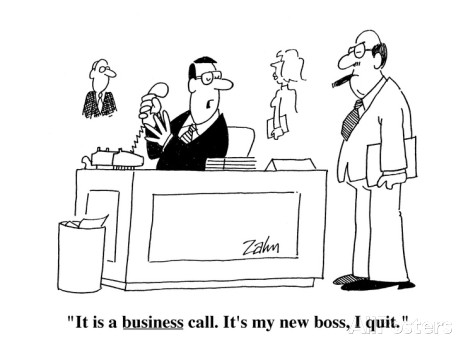The counterbalance of any successful recruiting strategy is the retention of productive agents.
After going through the effort and expense of recruiting, it’s painful to watch your agents walk out the door – especially if they end up helping one of your competitors.
 Successfully retaining agents may sound complex, but a recent study by the Gallup Organization suggests you could eliminate 50% of the defections by solving a single issue.
Successfully retaining agents may sound complex, but a recent study by the Gallup Organization suggests you could eliminate 50% of the defections by solving a single issue.
What’s the issue? It’s the relationship the agent has with the first level manager. The majority of agents who are leaving your company do so because of a strained relationship with their manager.
How can this risk be minimized? You guessed it – by being a great manager.
If you’ve not read any of Bernard Marr’s writings, you should start soon. Bernard is a bestselling business author and globally recognized expert in strategy, performance management, analytics and big data. You can check out his work at the Advanced Performance Institute.
He recently wrote an article outlining the characteristics of bosses who are loved by their employees. The retention rate of these employees is very high.
Here are the points I think most apply to the real estate industry.
Consistent and meaningful communication. The number one problem people cite with their bosses and managers is a lack of communication. If you can improve your communication skills and create a culture of open communication with your team, you will go a long way to improving your relationship with your employees. Most important, people want clear expectations and updates when it comes to what’s expected of them.
Give recognition and praise. According to Entrepreneur magazine, 65 percent of employees would be happier if they got more recognition at work, whereas only 35 percent say they would be happier if they got a raise. Build a routine of recognition and praise. You can set a goal of giving praise to at least one employee per day, make it a part of weekly staff meetings, or set a reminder to send out “thank you” emails to staff regularly. Whatever works for you. Don’t worry too much about awards or even rewards; words go a long way.
Provide feedback, mentorship, and training. The role of boss as mentor seems to have fallen by the wayside somewhat in recent years, but people are still craving that kind of development role from their managers. Studies show that employees feel prouder of accomplishing harder work — but they need the right support to get there. Watch for opportunities to teach, to provide additional support, or to invite the right training for your employees. Make individual development a part of every job description.
Create a work culture by design. Good bosses find ways to foster a sense of community at work. Great bosses build that culture intentionally. A big part of that is finding and attracting the right team members — and making sure that the wrong ones move on quickly. It’s also about making sure those team members are in the right roles, the ones that make the best use of their particular talents and skills.
Create a safe space for failure. Some of you may cringe reading that, but the best bosses make their employees feel safe to take chances and fail. Employees who trust that their failures will be met with constructive feedback and support are more likely to think creatively, work outside the box, and come up with innovative solutions to problems. If people are too busy worrying about losing their job to take chances, you’ll never get their best work out of them. It’s important to foster a sense that you succeed and fail together as a team, so that no one is thrown under the bus.
This is a great checklist to keep in your top drawer. Evaluate yourself on a regular basis according to these ideals. Ask your boss (or a trustworthy peer if you’re the owner) to evaluate you on this topic – getting an outside opinion is always helpful.
If someone does leave your organization (and you’re lucky enough to get an exit interview), ask the individual to rate you according to this list. If you let someone down, it’s helpful to know the reason so you can make improvements.
Questions or Comments? Reply to your WorkPuzzle subscription email.
Didn’t get the WorkPuzzle email? Subscribe below. We promise not to share your email with others or use it for any other purpose but delivering WorkPuzzle notices.


